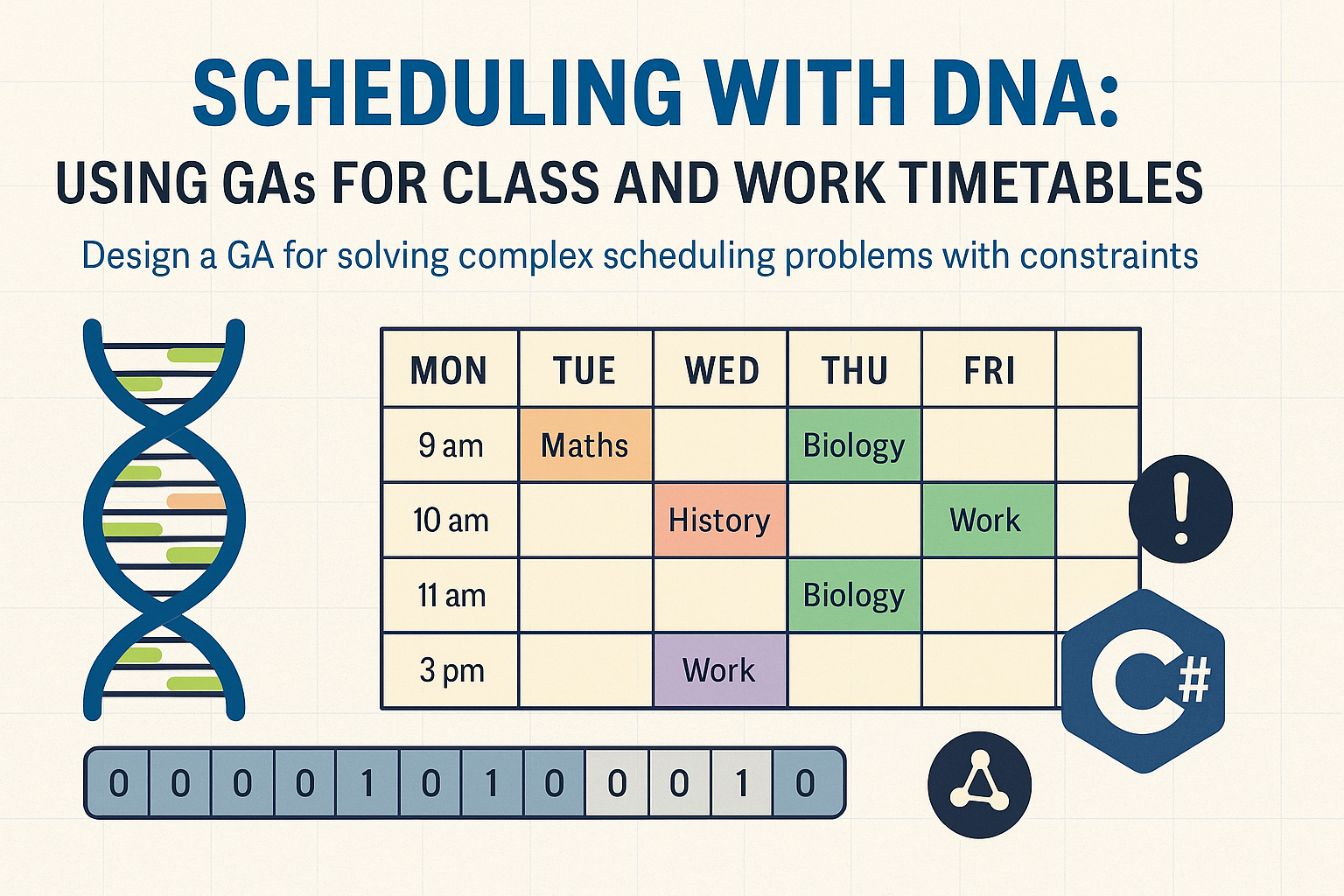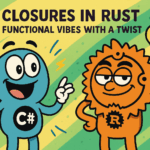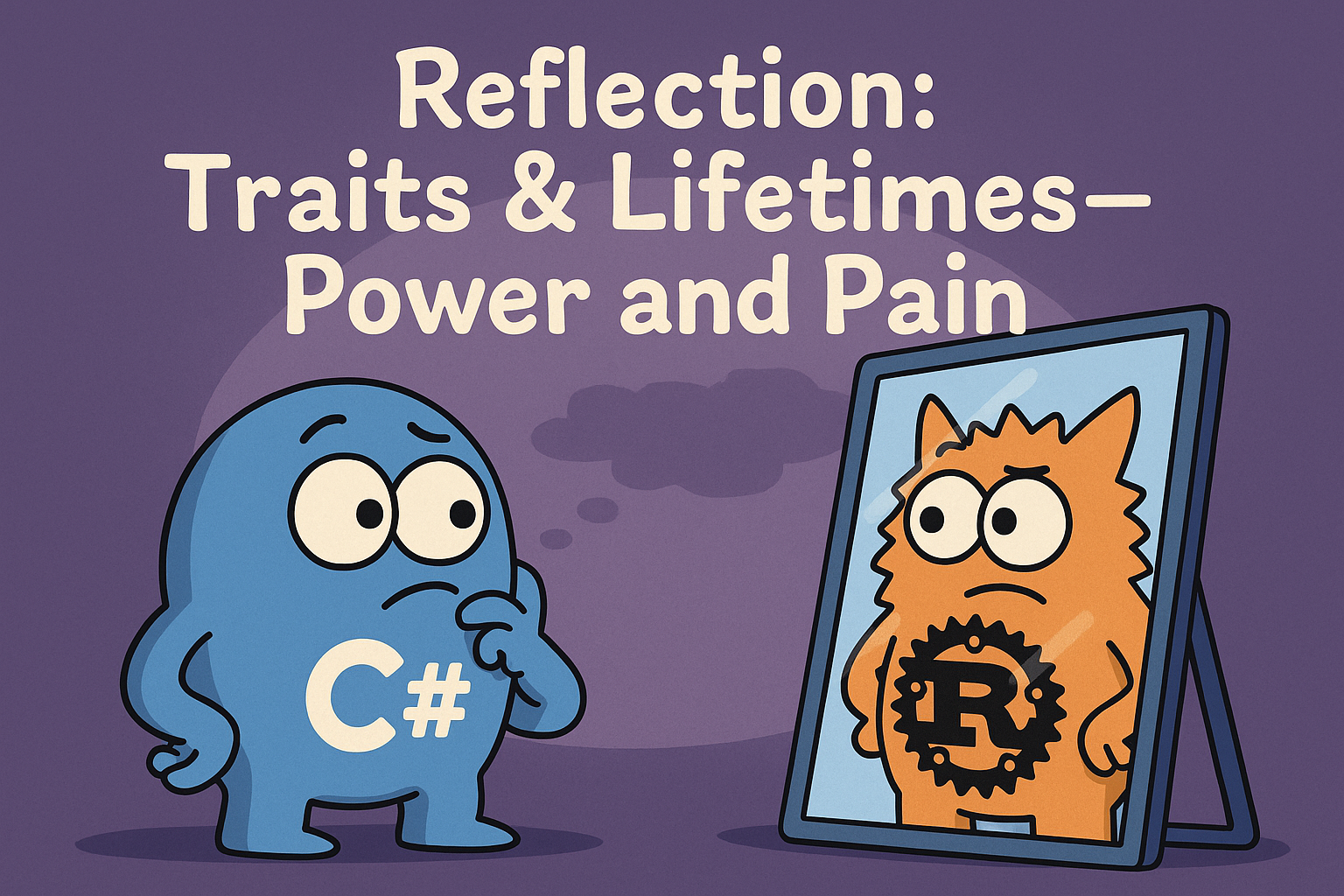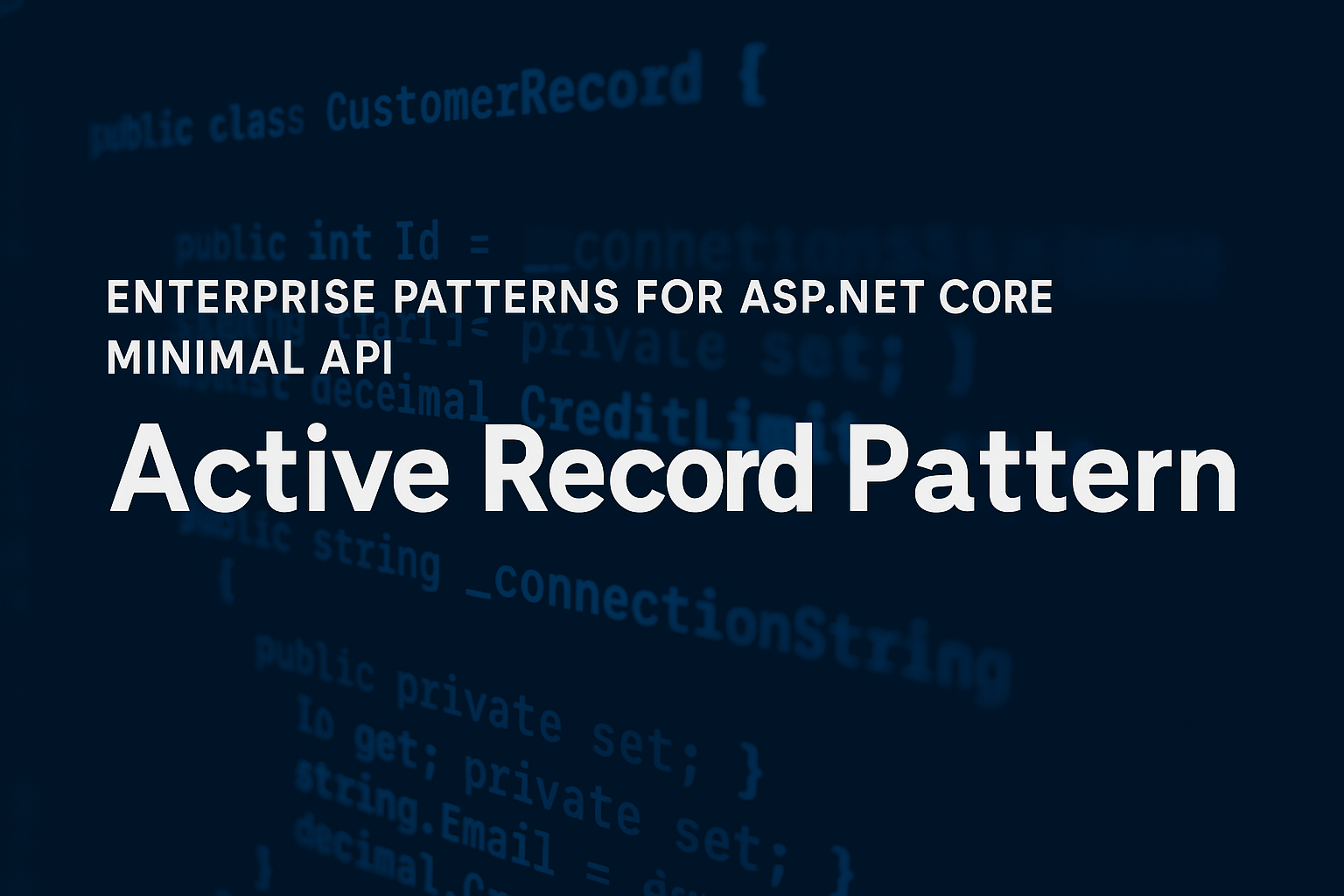
Rust Iterators and Functional Combinators
- Chris Woodruff
- May 14, 2025
- Rust
- .NET, C#, dotnet, programming, rust
- 0 Comments
Welcome to Day 34, and today we are taking a stroll through one of the most satisfying parts of Rust. If you’re a C# developer who loves LINQ, this will feel like home, with just enough Rust flavor to keep it interesting.
LINQ in C#: The Gold Standard
In C#, you probably know and love LINQ. You can chain together operations like Select, Where, and ToList to transform and filter collections elegantly.
var numbers = new List<int> { 1, 2, 3, 4, 5 };
var evens = numbers.Where(n => n % 2 == 0).Select(n => n * n).ToList();
LINQ enables you to work with IEnumerable and chain operators without needing to write manual loops.
Rust’s Iterator Pattern: Same Idea, Different Wrapping
Rust has iterators and it offers similar functional combinators like map, filter, and collect. Here is the same example in Rust:
let numbers = vec![1, 2, 3, 4, 5];
let evens: Vec<i32> = numbers
.iter()
.filter(|n| *n % 2 == 0)
.map(|n| n * n)
.collect();
println!("{:?}", evens); // [4, 16]
The vibe is the same. Chain methods transform the collection. The difference is how Rust enforces ownership and borrowing while keeping things fast and safe.
Iterators in Rust: Lazy Evaluation
Just like LINQ Rust iterators are lazy. That means the operations like map and filter do not actually run until you call something like collect or for_each.
let numbers = vec![1, 2, 3, 4, 5];
let iter = numbers.iter().map(|n| n * n); // Nothing happens yet
for n in iter {
println!("{}", n); // Now the squares are calculated
}
Collect: Turning Iterators into Collections
In LINQ you call ToList or ToArray to materialize the results. Rust uses collect which can create different types of collections depending on what you ask for:
let squares: Vec<i32> = (1..=5).map(|n| n * n).collect();
println!("{:?}", squares); // [1, 4, 9, 16, 25]
The type annotation on squares tells Rust what to build from the iterator.
More Fun with Iterators
Here are some other handy methods:
sum: Adds up the valuescount: Counts the elementsanyandall: Check conditions across the elements
Example:
let numbers = vec![1, 2, 3, 4, 5];
let total: i32 = numbers.iter().sum();
println!("Total: {}", total); // Total: 15
let has_even = numbers.iter().any(|n| *n % 2 == 0);
println!("Contains even number: {}", has_even); // true
Why Rust’s Iterators Are Awesome
- Lazy by default
- Zero-cost abstractions with no runtime overhead
- Ownership and borrowing baked into the design
- Powerful chaining without allocating unless you choose to collect
Rust iterators give you the functional expressiveness of LINQ while staying true to Rust’s philosophy of safety and performance.
Wrapping It Up
If you enjoy LINQ you will love Rust’s iterators. They let you work with data in a clean readable way without giving up control over performance. Tomorrow we will reflect on the week and talk about the power and challenges of traits and lifetimes. See you then!






